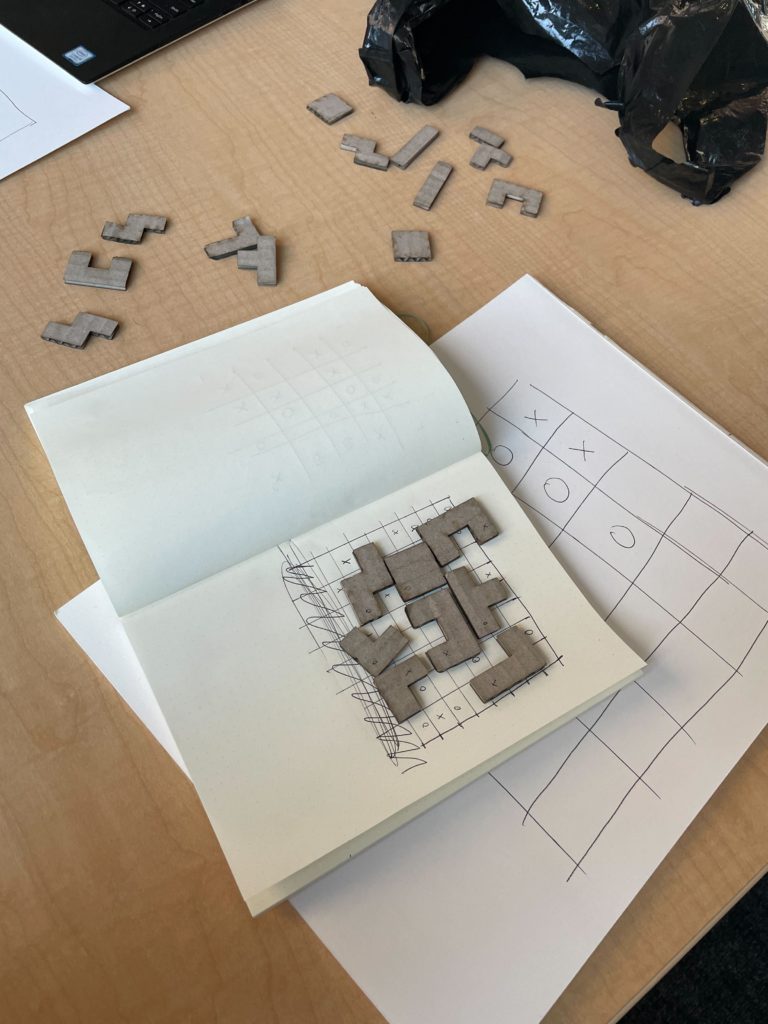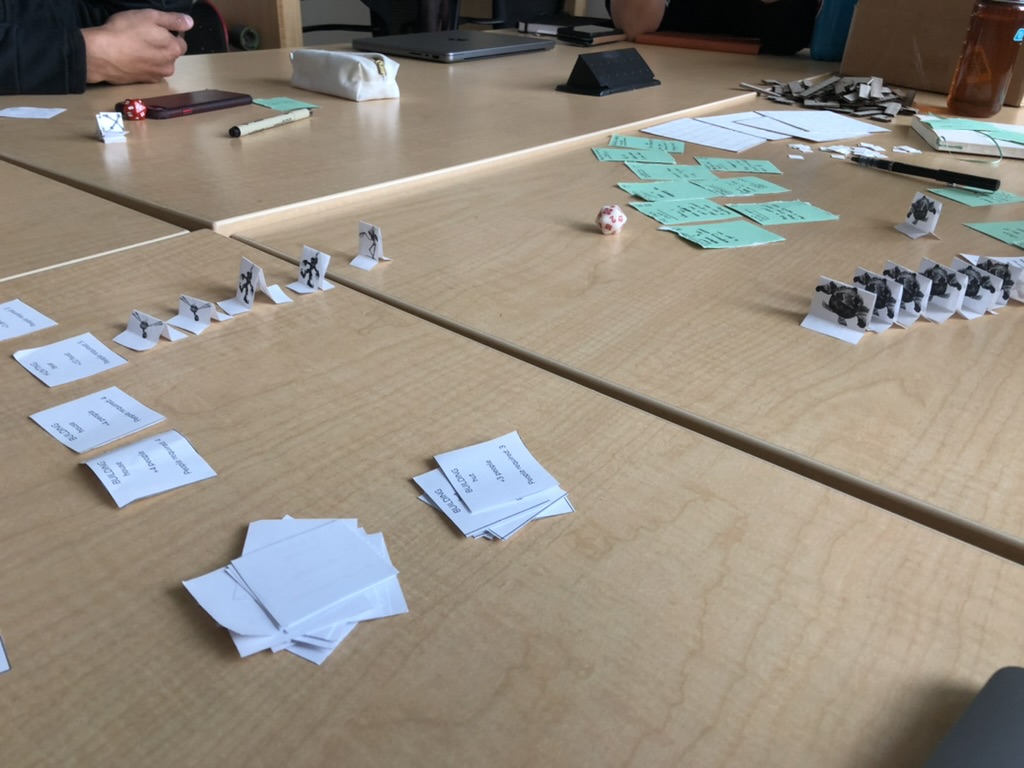Get schooled! is a systems game that may be the nerdiest project I have ever made! In this game, players each take on the role of an influential education philosopher and run a school in accordance with this philosophy. They compete to meet the needs of a common set of students by creating programs that will appeal to them. This game is designed to spark discussions about how different educational approaches might best support the needs of different learners. As a masters student in education, I essentially translated my notes from my class on curriculum construction into a playable format.
Before we began this project, I felt optimistic about creating a systems game as I had previously created a systems game about abortion access earlier in the semester. I enjoyed the experience of translating core aspects of the system into game mechanics. However, Get Schooled! proved to be much more complex than the previous game I worked on. This is because the system of education is especially stratified and unwieldy.
Early on in the project, we created a map of educational stakeholders that covered two notebook pages and included several dozen actors. It became clear that it would be an impossible task to map the entire system. Then the question became: what piece of the system would be most conducive to a game?
We began by positioning players as school board members who work together to make choices for their district. The challenge with this approach is that in real life, school board meetings are notoriously unorganized, stressful, and not fun. It is a decentralized body with many conflicting opinions and many stakeholders to report to. Thus, modeling the game after the school board resulted in some heated debate, but not much progress in terms of making choices that actually meet student needs.
It became clear that to make the game more engaging, players needed specialized roles. We considered having players take on the roles of different types of stakeholders (parents, school board, policy makers, and principals), but the mechanics for each of these roles would be too divergent to make a unified game. When someone brought up the idea of using different philosophies, it unlocked a new path forward for the game. I shared with the group the core elements of educational philosophies, and they were excited that these provided interesting goals for players.
It was a delightful experience to watch playtesters engage with the philosophy-based version of the game. Players demonstrated curiosity about the different approaches to education and made thoughtful choices aligned with their philosophies. I feel proud to have distilled key ideas covered in weeks of my curriculum classes into a short, playful learning experience. This experience affirmed my belief that games are powerful tools to teach complex ideas. While there is of course value in a deeper study of the education system, Get Schooled! offers a strong primer for such investigation that allows players to talk through the core impacts of educational choices. Moving forward, I am excited to think about other ways to embrace play to teach about difficult, unwieldy concepts.



